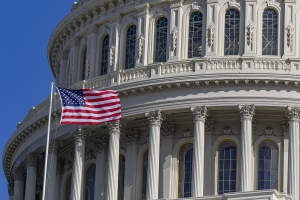Want to Hear From God in Dreams? Get More Sleep, Author Says

If you want to hear from the Lord and encounter Him in your dreams, the answer is to get more sleep and dispense with religious mindsets, according to an author and pastoral counselor.
In an interview with The Christian Post about her latest book, Winning the Battle for the Night: God's Plan for Sleep, Dreams, and Revelation, Faith Blatchford said she believes culture has turned a corner when it comes to sleep and she wants to offer hope to the tens of millions of Americans who are suffering from sleep deprivation.
Writing and researching the book was, for the author, "a kaleidoscope of revelation," she said. Blatchford hopes she can be a messenger of sorts for God's divine purposes for sleep, "God's sleep ambassador," if you will, she added.
"The numbers are increasing as far as the sleep deficit" among Americans, Blatchford said, mentioning a study she read a few years ago that showed around 70 million Americans suffered from some kind of sleep disorder. Related statistics show that nearly two-thirds of Americans do not get enough sleep.
Among those tens of millions of people, some are chronic insomniacs. Others opt not to sleep by choice, and Blatchford was once such a person.
But God wants to be involved in our night hours, she would soon discover, and destructive mentalities stand in the way of that.
"My motto was: Sleep is highly overrated. I had so many things I wanted to do and it just seemed to be like a waste of time to do nothing for eight hours at night. And so, I would do as little sleeping as humanly possible and really took pride in that," Blatchford recounted.
She had friends who would tell her of these remarkable things they had been praying about, and would subsequently encounter God in remarkable ways in their dreams and she began to wonder why she wasn't having them, as a believing faithful Christian.
She shared her frustration about this with one such friend out of a place of stress and a little jealousy.
Her friend replied: "Faith, you don't sleep enough to dream."
That conversation marked a turning point and she set out to know more about the dream world, particularly given how many instances there are of God communicating in dreams with people in Scripture.
But Blatchford still had to be convinced that sleep was not a waste of time, which led her to research the benefits of sleep.
In addition to the medical benefits of sleep — which Blatchford outlines in chapter 5 — she would also discover a particular problem many Western Christians have about the dream world, a pernicious mental hurdle that bars God from speaking in dreams. But some of these same Christians in the West who believe this have no problem with the idea of God revealing himself to Muslims in the Middle East in their dreams.
While dreams do not have the same authority as Scripture and it would be foolish to make doctrines out of them, the author underscores that when approaching this topic, one's mindset matters significantly. Though some dreams are indeed silly, Blatchford writes that many Christians tend to regard their dreams as simply a product of eating "too many lentils" or "pizza" the night before.
And some of the Christian faith's most well known theologians over the years of Church history have written that the way Christians encounter God is solely through the Word of God, the mind, and their five senses — but nothing coming from God Himself in the spiritual realm. Yet Blatchford maintains that the spirit realm does not belong to New Age gurus or the occult, but to God.
In chapter 4, the author unpacks several of those experiences biblical characters had encounters with God in the night and how their obedience to what He told them was essential to the unfolding of the biblical timeline.
And one has to at least wonder, she contends in the book, how American history might have been different had Abraham Lincoln believed that God gave warnings through dreams.
Lincoln recounted a dream that he had just a few days prior to his assassination to his wife and bodyguard, Ward Hill Lamon, who described the dream in a biography called Recollections of Abraham Lincoln 1847–1865.
As is described in this biography, Lincoln recounted the many times in the Bible where God interacts with people in dreams but people in his day considered dreams foolish. His wife told him that he looked "dreadfully solemn" as he told her this, and inquired if he believed in dreams. He told her that he did not but that he recently had one that haunted him.
Lincoln had dreamt about his own untimely demise.
In this dream the 16th American president was walking around the various rooms of the White House with a deathlike stillness in the air. He heard sobs coming from mourners but could not see who was crying. When Lincoln entered the East Room he came upon a catafalque supporting a corpse in funeral vestments with the face covered with soldiers stationed about it.
"Who's dead in the White House" Lincoln asked a solider in the dream.
He replied: "The President ... he was killed by an assassin."





























